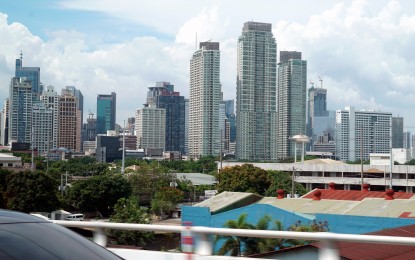
File photo
MANILA – The Philippines is on track to be an upper middle-income country by 2025, National Economic and Development Authority (NEDA) Secretary Arsenio Balisacan said on Wednesday.
"We are on track and the upper middle-income country status will be achieved in 2025 based on our estimates given current assumptions on our growth prospects for 2023 and 2024. [I'm] hoping that we don't have any major disasters or external factors that will hit us again," Balisacan said in a briefing.
Based on the World Bank's data, the Philippines is currently classified as a lower middle-income country with a gross national income per capita of USD3,950 as of 2022.
"The threshold [for] joining upper middle-income class is something like USD4,500 or something close to that," Balisacan said.
He admitted that the Philippines "should have been by now actually an upper middle-income class if not for the sharp contraction of the economy in 2020."
The strict quarantine measures imposed to prevent the spread of coronavirus disease 2019 (Covid-19) caused the Philippine economy to contract by more than 9 percent in 2020.
"We lost three years as a result of the contraction," Balisacan said.
However, Balisacan said they are optimistic about the country's growth prospects.
He said the government is keeping the 6 to 7 percent economic growth target for this year, adding the economy should grow by at least 5.9 percent in the next three quarters to achieve the lower end of this target.
"So if we hit the lower end, I think that is still a remarkable performance given that everywhere else is a downgrade and the external environment has not much improved," he added.
Meanwhile, Balisacan said the Maharlika Investment Fund (MIF) and the public-private partnership (PPP) will help the Philippines to sustain and complete its development programs and projects as it transitions to upper middle-income country.
He said that once the country achieves an upper middle-income status, the country will no longer be qualified for concessional loans like official development assistance (ODA).
Concessional loans offer low interest rates and extended grace periods to countries with below upper middle income status.
"At this point, we are already preparing for that eventuality. One is getting the governance of PPP more robust so that we can have those key projects like infrastructure funded by PPP if we can't fund them by ODA," he added.
Balisacan said the MIF initiative could also be used to fund critical or social projects.
“But between the choice of remaining (in) a lower income country and keeping your access to concessional loans, I would rather go for (an) upper middle-income country because that means higher standard of living for all Filipinos especially if it comes with generation of high quality jobs and reduction in poverty," he said. (PNA)
